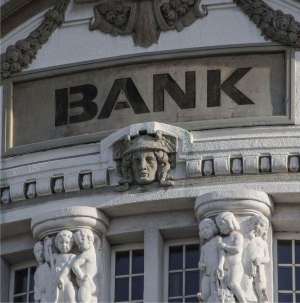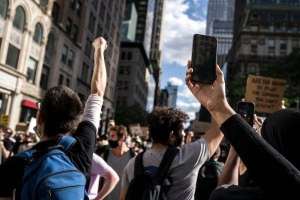The launch of the probe into the IPO of "Facebook" looks imminent, following the opinions expressed by the officials of the Securities and Exchange Commission (SEC) and of the Financial Industry Regulatory Authority, Inc. (FINRA), putting pressure on the company, its main underwriter "Morgan Stanley" and on the Nasdaq market, as reported by Reuters.
On Tuesday, "Facebook" shares closed down 8.9%, at a price of less than 31 dollars, after a depreciation of 11%, seen on Monday.
So, in just two days since its listing, the company lost over 19 billion off its capitalization (it started off from 38 dollars/share).
On Monday, Reuters had reported that an analyst of "Morgan Stanley" had cut the earnings forecast for "Facebook", a few days prior to the listing, information which wasn't disseminated to the investors, prior to the beginning of the IPO.
The company itself asked the analysts of the syndicate of 33 underwriters to cut their forecasts prior to the IPO, according to sources close to the IPO, which are now accusing: "The management of < Facebook > did not forecast the data of the business correctly, it revised the numbers along the way, and it only notified the analysts about that, and not even all of them".
The company had revised the documents of the offering on May 9th, in which it was warning about the negative impact of the users of "Facebook" switching to mobile platforms, but the vague language did not represent a clear enough warning about the dropping revenues.
"Facebook" did not yet make any significant revenues from mobile advertising.
The disclosure of the weaker numbers to selected institutional investors is now leading to concrete charges against "Facebook" and "Morgan Stanley", on the illegal dissemination of information ("selective disclosure").
The small investors, who acquired "Facebook" shares in the IPO, did not have access to that information.
The spokesperson of "Facebook" declined to comment on the information.
"< Morgan Stanley > used the same procedures in the listing of < Facebook > which it follows in every IPO", its spokesperson Pen Pendleton, who claimed that the procedures comply with all the regulations in effect.
Three more intermediaries of the offering, "JPMorgan Chase", "Goldman Sachs" and "Bank of America Merrill Lynch" have also revised their estimates, during the roadshow of the "Facebook" IPO, according to sources close to the situation.
The new assessments were also considering lower earnings and profit forecasts, for Q2 2012 as well as for the entire year, according to data obtained by Reuters.
The problem of "selective disclosure" has drawn the attention of the main securities regulatory body in the United States.
"It is a matter of regulation for us, and I am convinced, for the SEC as well", said Richard Ketchum, chairman and CEO of the "Financial Industry Regulatory Authority, Inc. (FINRA) -, who also said: "And without saying whether it's us or the SEC, we will collectively be focusing on it".
Mary Schapiro, the chairwoman of the SEC, said: "I think that there are sufficient reasons to have confidence in our markets and in the integrity of their operations, but there are certain problems which need to be carefully reviewed, when it comes to Facebook".
The state of Massachusetts said it would examine the situation, as state secretary William Galvin issued a subpoena to "Morgan Stanley" in connection with the talks between the analysts and investors concerning "Facebook".
A law firm of Los Angeles also filed a class action suit against "Facebook" and its underwriters, accusing them of inadequate dissemination of key information.
The legal context which surrounds the obligations to disseminate the information about companies prior to the IPO, is murky, the lawyers of the firm, who specialize in the stock market, said.
Just like here, and everywhere else, in the US public companies are subject to certain Fair Disclosure regulations which require that all information be disseminated to all investors at the same time.
However, some American experts claim that those regulations do not apply to companies that are not yet listed, exploiting (in a very Romanian manner we dare say), the impossibility of applying the law to subjects which are not specifically targeted by it (companies which are not listed can not make the object of the regulations of the stock market).
It is an artificial paradox, and the very fact that it is being used as an excuse proves that the American legislation is not evolved enough to prevent it.
Of course, the paradox illustrates bad faith, thus providing a sort of "criminal asylum", granted to issuers as well as intermediaries.
Adam Pritchard, professor of law, specializing in the equity markets, at the University of Michigan, and former executive of the SEC, said that in general, information disseminated prior to the IPO may not be inconsistent from what is mentioned in the documentation, but he did mention that frequent deviations from these rules occur during oral communication (the professor uses the notion of "gun-jumping", for oral communications).
However, the legal subtleties do not assuage the anger of some investors and brokers, who claim that the listing of "Facebook" has become a nasty example of a system working against the small investors.
• The shareholders are not unhappy with the Nasdaq
Aside from the expected legal pressure on "Facebook" and "Morgan Stanley", a huge target is also painted on the Nasdaq OMX Group, which shares the blame for the trading failures (on Friday, the market had a series of difficulties, which the officials claim were "technical in nature"), which gave the market participants a reason to believe that the system is to blame for the weak performance of Facebook's stock in its first day.
According to Reuters the market operator has set aside funds to compensate its customers, but some people on Wall Street are warning that the Nasdaq will no longer have the same power in attracting IPOs.
Also, a class action lawsuit filed with the Federal Court in Manhattan demanded compensation for every person that lost money, following the flawed trading caused by the technical errors of the Nasdaq system.
"It is horrible for the markets", the former chairman of the SEC, Arthur Levitt, said concerning the IPO and the way it was handled by the Nasdaq and the intermediaries, and he went on to say: "It is an event with negative implications in the long run, for an industry that can not afford to have its reputation tarnished so, and the final chapter has not yet been written. No one will escape this unscathed".
But the shareholders of the Nasdaq did not penalize the company, on Tuesday, in a general shareholder meeting which lasted only a few minutes and where the executives where not questioned on the issue of the trading of "Facebook" stock nor on the measures required to fix the situation.
"There were clearly mistakes in the listing of "Facebook", but we want to emphasize the fact that this was the biggest initial IPO ever and that on Friday, the day of the listing, we have processed over 570 million shares", the executive director of the Nasdaq, Bob Greifeld said, in the General Shareholder Meeting.
As if they had counted them by hand ...
At the open of the Nasdaq, yesterday, "Facebook" stock was trading up 3.13%, at 31.97 dollars.


























































